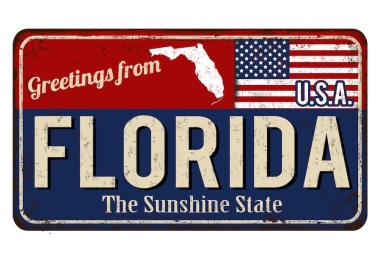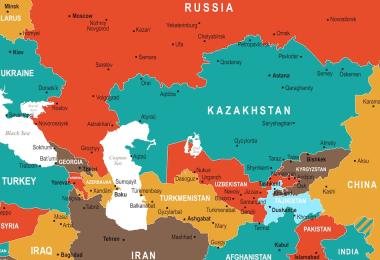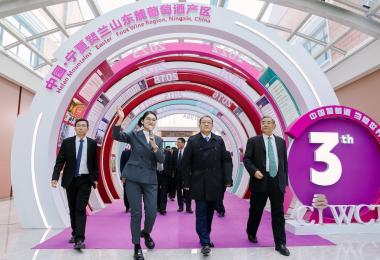Enotria gives the impression of a company that is comfortable in its skin. There’s nothing self-congratulatory about it – the operation’s warehouse and headquarters, in a drab business park in an unfashionable part of west London, is unadorned and practical. It has none of the ‘look at me!’ zaniness of Bibendum, its closest competitor, nor the sheen of Liberty Wines, another rival.
But in the last five to seven years, Enotria has quietly positioned itself as a reliable and flexible specialist wine supplier with an enviable reputation for delivering on its promises. Sommeliers such as Emily O’Hare at the River Café are full of praise for its proactive attitude, and wine writer Matthew Jukes, who buys for a group of restaurants including the Masala World group of Indian Restaurants and the private wine club Quintessentially, says, “They have not put a foot wrong in the 27 years I have been buying from them.”
Optimistic outlook
Alison Levett, Enotria’s CEO of seven years’ standing, says they are the largest specialist wine supplier to the restaurant trade in the UK. She draws a distinction between her company and composite distributors like the recently-bankrupt Waverley TBS, which supplied the entire drinks package from soft drinks to spirits and wine, and Bibendum, which recently moved into spirits and soft drinks. “We are an out-and-out wine specialist.”
How did they react to the wave of big bankruptcies last year, when Stratford’s Wine Agencies went into administration in September, followed by Waverley in October? Were they ready to pounce on the thousands of clients that were suddenly left without a wine supplier?
“We observed, and even predicted, the demise of those big players, but we haven’t picked up an enormous amount of business from the closures,” says Levett. “They were generally serving a lower end of the spectrum where we don’t operate, and those clients will want a composite player.” Levett adds that they are having “conversations” with possible clients – “those who are beginning to wonder if a huge generalist is really what they want.” Levett is focussed and articulate and exudes confidence. When she says “we’re on the acquisition trail” it’s with the air of someone looking at a wine landscape ripe with opportunity.
The wine list is extensive but not bloated – 1,200 wines which with multiple vintages and bottle sizes would come to about 3,000 in total – and it is now at the size that Levett wants it. “Anything bigger than that would become unmanageable,” she says. The clear plan is to exploit Enotria’s reputation as a specialist purveyor of mainly small-production, artisan wines.
Italian roots
The company was started in 1972 by Italian-born Remo Nardone, who had worked in sales for Hedges & Butler. He brought in a handful of Italian wines, among them producers such as Fontanafredda, Umani Ronchi and Fattoria dei Barbi, which are still bastions of the list today. Nardone started expanding the list in the 1980s to include Spanish, French and New World wine, but it wasn’t really until he sold the business in 2005 to a venture capitalist, ISIS Equity Partners, for £8.2m ($12.6m), that Enotria started shedding its reputation as the Italian specialist and started being seen as a wine specialist.
Turnover since the sale has more than doubled, from £47m to £106m today. The business has expanded in every direction, snapping up Essex wine merchant Wheeler Cellars (the trade arm of Lay & Wheeler) in 2008, and Great Western Wine Company in 2010. “It’s a great achievement to have taken over an owner-operator business run by an amazing entrepreneur,” she says, “to change the management team and give it a more conventional structure, make the transition to not being an Italian specialist, turn it into a really well-run professional business, but without losing the core Enotria culture of being about boutique, estate and artisan family winemakers.”
Enotria’s wine list is constantly under review: it is more difficult to keep a portfolio to a manageable size than it is to simply grow it. There can be “emotional discussions” at the twice-yearly review meeting, Levett says, as buyers defend particular favourites. The list includes some prestigious names: Henschke, Skillogalee and Mount Langi Ghiran in Australia; Marques de Riscal, Pago de los Capellanes in Spain; Ken Forrester in South Africa; and the newly signed Marlborough producer Yealands Estate; Domaine de la Janasse in Rhône; and Trimbach in Alsace. But Levett also sets great store in the finding of “small, artisan” producers that pique the interest of sommeliers and cement the company’s reputation as a supplier of interesting wines. She is delighted by their new Margaux estate, Château Mille Roses, “found by our buyer travelling with one of our top sales people, a Master Sommelier, looking for interesting boutiquey wines.” As evidence of the company’s “pioneering” spirit she cites its early championing of the Douro’s Quinta do Crasto, which was one of the first Port houses to start producing still wines.
The company is proactive; it will source tiny amounts of wine for clients – under a dozen. O’Hare at the River Café says they are happy to get her bottles they don’t normally import, “because I’d heard good things about the wines.”
It is a mark of success that the fact Enotria is owned by a venture capitalist carries no weight at all with its clients. Last year ISIS sold its majority share to BlueGem Capital Partners, owners of London’s Liberty department store. “I know that when they came in, everybody threw up their hands,” says Levett. “They assume that private equity comes along with a cost-cutting agenda, but they are just so wrong. They are about identifying businesses that they feel have growth potential.” BlueGem, Levett says, “were keen to back us because they, like us, can see good potential in growing market share and agree that there is significant scope for consolidation through acquisition.”
What sort of business would they be interested in acquiring? The perfect business, would be “anything between a £3m to £4m turnover, to £10m to £12m, with a strong geographic presence, good quality sales people and a nice on-trade customer base.” They are having “active dialogue with one or two companies” and “within the next 12 months we’ll be ready to make an announcement.”
Another key strategy for growth is their joint venture with the huge Sicilian cooperative Cantine Settesoli, which represents 2,300 growers and whose international brand, Inycon, is well known in the UK. Enotria entered into the relationship with Settesoli in 1999 and now sells its wine in 35 countries. Settesoli represents some 10% of Enotria’s overall sales – around £10m. A contract has just been signed on a three-year deal with a Chinese company to supply 3m bottles; there is “work going on” in Brazil, they are looking hard at eastern Europe, and they are “quite excited about opportunities emerging in Russia”. There is also a long-standing relationship with a wholesaler in Japan.
While the only wine they sell internationally is Settesoli, expansion into other wines is an option under discussion. The crucial thing, Levett says, is that through Settesoli they have international networks set up. “We’re not trying to build an international company from scratch.”
Levett also stresses the importance of investment in people, something BlueGem is “absolutely passionate” about. Enotria has 183 staff – there were 80 in 2005 – and is on the lookout for more. “We’ve hired six or seven new salespeople this year. The big challenge is to find people with the right combination of knowledge, passion and commercial acumen.”
High street luxury
The relationship of a successful distributor with its clients is so much more than simply supplying wine. Enotria has a full-time staff of seven in its design department, churning out wine lists for clients at the rate of two or three a week.
The structure of the wine list, along with confident and well-informed staff in the restaurant, is essential to get customers engaged, Levett says. A new development – one that Enotria has pioneered – is the inclusion of a ‘Discovery Wines’ section on lists. This is a way of getting diners to go outside their comfort zone, try something new and not “default to Pinot Grigio or Sauvignon Blanc”.
Enotria supplies some 3,000 restaurants – the on-trade is 65% of turnover. These include leading hotels and restaurants such as Mr Chow, Bread Street Kitchen, Kettners, Gleneagles and Chewton Glen. But it is in what Levett calls “premium and super-premium casual dining” that the richest pickings are to be had – especially in London, whose economy seems to be immune to recession. There has been an explosion in the kind of gastro-pub or steakhouse that offers high-quality, restaurant-style food with a good imaginative wine list, in a casual atmosphere. The new four-outlet chain Hawksmoor is a good example of the super-premium end. It is in this type of eatery that Enotria sees that holy grail of all wine distributors: increased value. While the vast majority of wine sold in restaurants is in the £16.00 to £23.00 bracket, in super-premium outlets “we can encourage customers to stretch up a bit. There are real opportunities in the £30.00, £35.00 or £40.00 area.”
Levett feels that the wine trade can be slow to exploit these opportunities, and suggests it should look to other industries – such as fashion – to see how efficiently luxury can be linked with high street. She’s not talking about dumbing down, but about “finding wines that replicate the style of the classics but are much more competitive in price – so we want clients to know there are wines in this fantastic portfolio that give consumers the feeling they are getting a really high-quality experience for a not- unreasonable price.”
Enotria’s vision is “to be the best specialist wine importer in the country,” says Levett. There are a dozen ways of deciding what is “the best”, and many of her competitors would thrust themselves forward to claim the prize by virtue of size, or reach, or turnover. But judging by its reputation, its ambition, and its formidable financial backing, Enotria is headed in the right direction. “We’re going full speed ahead with the headlights on. We’re definitely not looking in the rear-view mirror.”








